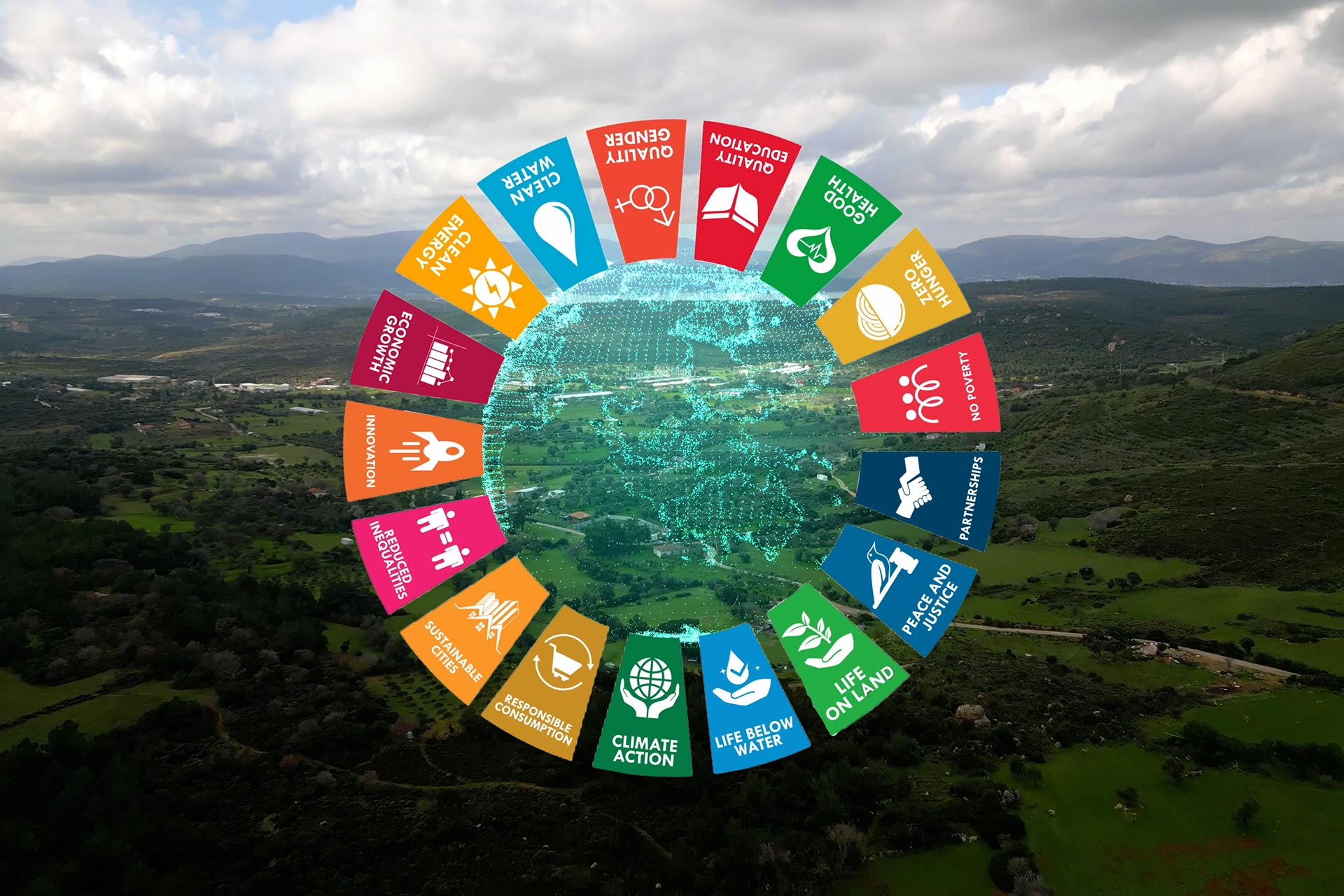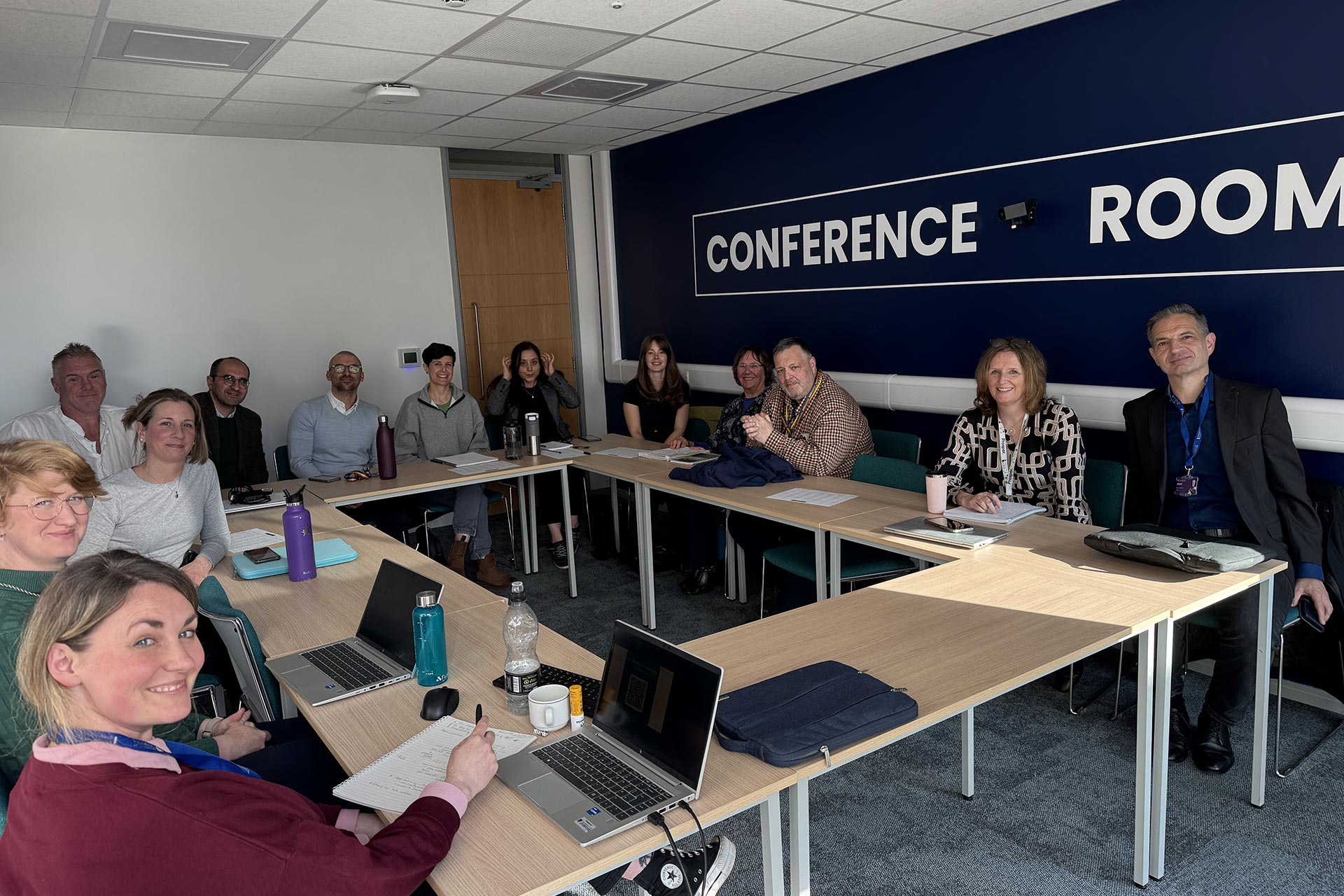
As the United Nations Climate Change Conference, known as COP30 draws to a close this week, global leaders once again reaffirmed the urgent need to limit and prepare for the impacts of climate change.
Sustainability is a priority for the University, and we are committed to embedding the UN Sustainable Development Goals across the institution, through research, teaching and our community of staff, students and alumni.
Empowering the next generation of climate leaders
During COP30, Professor Ric Williams, Chair in Ocean and Climate Science, and Dominique Price, Career Consultant in the Careers and Employability Service, hosted an interactive workshop for more than 100 first-year students on our Climate, Atmosphere and Oceans module.
Guest speakers Sean Maher and Archie McClusky from the Liverpool City Region Combined Authority’s Place and Net Zero team, alongside Ellen Moncur, Sustainability Consultant at Powering Net Zero, highlighted the scale of opportunity emerging in the region’s rapidly expanding climate innovation sector. From local climate action to the demand for green skills and new career pathways, students gained valuable insights into the roles they could play in driving a more sustainable future.
Liverpool research showcased on the global stage
Researchers from the Department of Earth, Ocean and Ecological Sciences contributed to the COP30 Virtual Ocean Pavilion with a free webinar exploring the critical role of marine biology in a rapidly changing climate. The session highlighted how ocean ecosystems both influence and respond to environmental shifts, and showcased world-leading research underway in Liverpool that is helping improve climate predictions and inform future policy.
Research for a better world
In addition to our COP30 contributions, a continued programme of activities on sustainability research has been taking place throughout 2025. The Interdisciplinary Centre for Sustainability Research (ICSR), launched in February 2025, supports teams of researchers who can collectively tackle the United Nations Sustainable Development Goals (SDGs). Throughout 2025, the ICSR has designed activities to spark collaboration and accelerate impact. Workshops held in March and April brought together researchers working across climate-related SDGs including clean water, clean energy, sustainable cities, responsible consumption, climate action and biodiversity, to identify existing strengths and emerging opportunities. This was followed by a programme of sandpit events where academics scoped potential project groups and themes to develop into new research proposals and funding bids.
The University’s growing leadership in climate data and artificial intelligence was highlighted at the Liverpool City Region AI Summit in October, where IBM and University of Liverpool researchers demonstrated innovative AI tools designed to support local sustainability challenges. To help sustain this momentum, newly recruited Faculty Champions for the ICSR are now supporting research excellence, enhancing coordination across disciplines, and ensuring that challenge-led research delivers meaningful, real-world outcomes.
Discover some of our Sustainability highlights from 2025
🌍 Liverpool scientist contributes a major international publication, coordinated by the UK National Commission for UNESCO, which reveals how British-led research is helping the world understand, and respond to, one of the most visible frontlines of climate change.
🏙️ New report from University of Liverpool and ARUP sheds light on how UN SDG 11 is shaping urban planning systems across the globe.
🌱 2025 marked 10 years since the launch of the UN Sustainable Development Goals, and our SDG report highlights how students and staff are working to tackle some of the world’s most urgent sustainability challenges through research, education and campus operations.
🌋 Liverpool researchers tap earth’s chemistry in quest for clean hydrogen. Deep beneath the Earth’s surface, natural chemical reactions quietly generate hydrogen, a clean fuel that produces only water when burned. We are now investigating whether these processes can be harnessed closer to the surface to provide a sustainable, carbon-free energy source.
🌿 University climbs 10 places in People & Planet University League, ranking in 37th place out of 149 institutions in the UK and 8th in the Russell Group. The People & Planet University League is an award-winning sustainability ranking which assesses UK universities on their environmental and ethical performance.
Find out more about our sustainability efforts
Sustainability strategy | Interdisciplinary Centre for Sustainability Research | Sustainability news | Facebook | Instagram | YouTube | LinkedIn